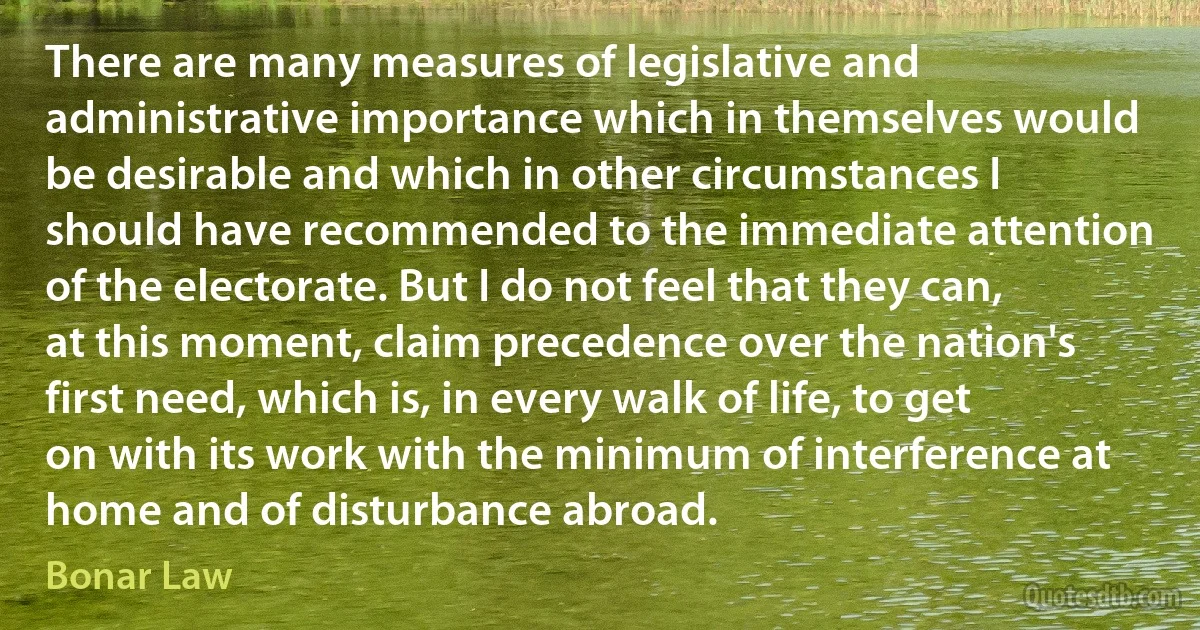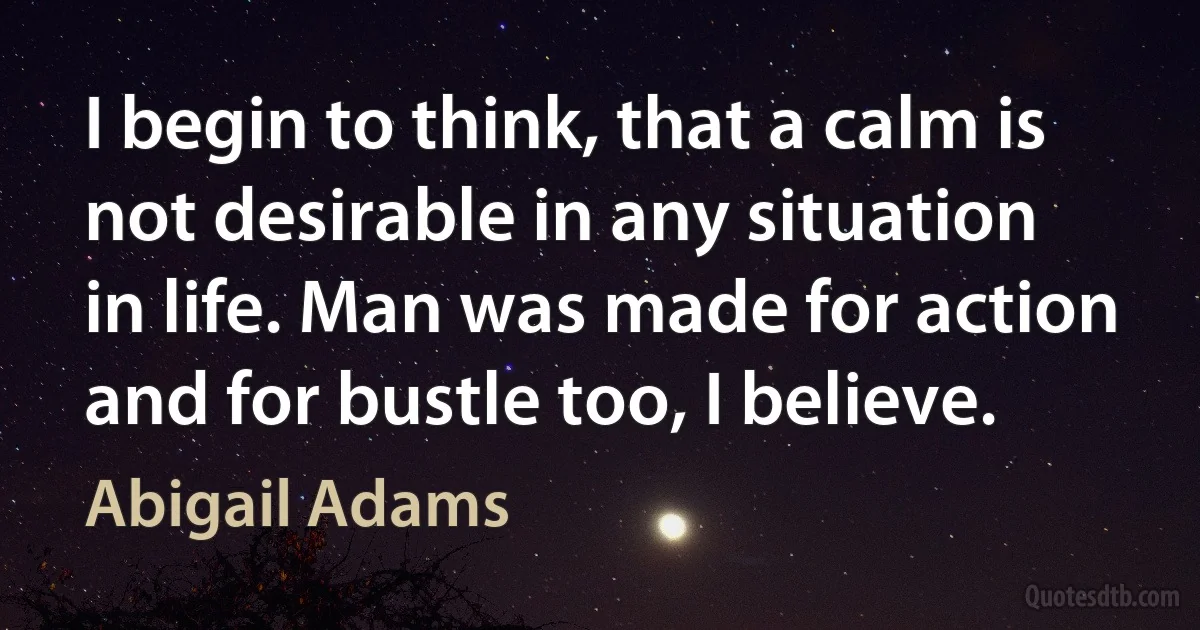Desirable Quotes - page 4
The effectiveness of any model used to describe and understand behavior of a particular system as a whole ultimately depends on the degree to which that model accurately represents that system. Nevertheless, there have been and are situations in which application of deterministic or animate models to social systems have produced useful results for a short period of time. However, in a longer run, such mismatches usually result in less than desirable results because critical aspects of the social systems were omitted in the less complex model that was used.

Russell L. Ackoff
Man seeks objectives that enable him to convert the attainment of every goal into a means for the attainment of a new and more desirable goal. The ultimate objective in such a sequence cannot be obtainable; otherwise its attainment would put an end to the process. An end that satisfies these conditions is an ideal...
Thus the formulation and pursuit of ideals is a means by which to put meaning and significance into his life and into the history of which he is part.

Russell L. Ackoff
What reason had he then for endeavouring, with such bitter hostility, to force me into the senate yesterday? Was I the only person who was absent? Have you not repeatedly had thinner houses than yesterday? Or was a matter of such importance under discussion, that it was desirable for even sick men to be brought down? Hannibal, I suppose, was at the gates, or there was to be a debate about peace with Pyrrhus; on which occasion it is related that even the great Appius, old and blind as he was, was brought down to the senate-house.

Cicero
What was it that made this human love so much more desirable to me than the love of my own kind? Was it because it was exclusive and capricious? The souls offered love and acceptance to all. Did I crave a greater challenge? This love was tricky; it had no hard-and-fast rules - it might be given for free, as with Jamie, or earned through time and hard work, as with Ian, or completely and heartbreakingly unattainable, as with Jared.
Or was it simply better somehow? Because these humans could hate with so much fury, was the other end of the spectrum that they could love with more heart and zeal and fire?

Stephenie Meyer
Desire, even the basest, kind, required the notion of futurity if it was ever to come off. A man without a future, a dying man, was no longer desirable. And however stupid such a reaction might have seemed, Paul knew that if the situation was ever reversed, he would feel the same way about the woman. Desire would have turned into compassion. Which is tantamount to saying that desire would vanish into thin air.

Françoise Sagan
I should like to make an observation to right honourable and honourable Gentlemen opposite. It is that I do not think they will help to produce the atmosphere in Europe which is so desirable by issuing papers that have been issued by the National Council of Labour, headed 'Hit Hitler.

Stanley Baldwin
There is little danger that any student, however idle or stupid, will fail to get some result; but there is great danger that he will be led astray, obsessed and overwhelmed by his results, even though it be by those which it is necessary that he should attain. Too often, moreover, he mistaketh the first resting-place for the goal, and taketh off his armour as if he were a victor ere the fight is well begun.
It is desirable that the student should never attach to any result the importance which it at first seems to possess.

Aleister Crowley
Government in reality, as has abundantly appeared, is a question of force, and not of consent. It is desirable that a government should be made as agreeable as possible to the ideas and inclinations of its subjects and that they should be consulted, as extensively as may be, respecting its construction and regulations. But, at last, the best constituted government that can be formed particularly for a large community, will contain many provisions that, far from having obtained the consent of all its members, encounter even in their outset a strenuous, thought ineffectual opposition.

William Godwin
Nor does spirituality mean the moulding of the whole type of the national being to suit the limited dogmas, forms, tenets of a particular religion, as was often enough attempted by the old societies, an idea which still persists in many minds by the power of old mental habit and association; clearly such an attempt would be impossible, even if it were desirable, in a country full of the most diverse religious opinions and harbouring too three such distinct general forms as Hinduism, Islam and Christianity, to say nothing of the numerous special forms to which each of these has given birth.

Sri Aurobindo
I should prefer to be free from torture; but if the time comes when it must be endured, I shall desire that I may conduct myself therein with bravery, honour, and courage. Of course I prefer that war should not occur; but if war does occur, I shall desire that I may nobly endure the wounds, the starvation, and all that the exigency of war brings. Nor am I so mad as to crave illness; but if I must suffer illness, I shall desire that I may do nothing which shows lack of restraint, and nothing that is unmanly. The conclusion is, not that hardships are desirable, but that virtue is desirable, which enables us patiently to endure hardships.

Seneca
A thought is an upshot of the desire. When someone thinks about what he wants, he does not think of something undesirable. For example, a person never thinks about the day of his death. On the contrary, he will always contemplate his perpetuity, for this is his desire. Thus, one always thinks of what is desirable (...) It turns out that thought serves desire, and desire is the "self” of the person. Now, there is a great self, or a small self. A great self dominates the small selves. He who is a small self has no dominion whatsoever, and the advice is to magnify the self through the diligence of the thought on the desire, since it grows to the extent that one thinks of it.

Yehuda Ashlag
It is worthy of emphasis that the United Nations exists not merely to preserve the peace but also to make change - even radical change - possible without violent upheaval. The United Nations has no vested interest in the status quo. It seeks a more secure world, a better world, a world of progress for all peoples. In the dynamic world society which is the objective of the United Nations, all peoples must have equality and equal rights. The rights of those who at any given time may be in the minority - whether for reasons of race, religion, or ideology - are as important as those of the majority, and the minorities must enjoy the same respect and protection. The United Nations does not seek a world cut after a single pattern, nor does it consider this desirable. The United Nations seeks only unity, not uniformity, out of the world's diversity.

Ralph Bunche
Now begins the true pilgrimage: Parsifal with the lance in hand! Here begins the symbol of renunciation! The renunciation lies, symbolically expressed, in the words, with the lance in hand! A renunciation is first, then, a renunciation in the true sense of the word, when one does not do something that one has recognized as desirable and has wished to do. The sojourn of Parsifal with the lance in hand corresponds to the 40 days that Christ shall have spent in the wastelands. It corresponds to the trials and tribulations which all candidates of all the old religions, of all mystical secret societies etc. had to undergo, before they could become initiates. This sojourn also corresponds therefore, to the 40 days of the fast and abstention, which yet today the initiates of a mystical society impose on their candidates as a test before they are left to study the mystical secret, salvational - teachings.

Theodor Reuss
It was when General Grant was fighting his way through the Wilderness to Richmond, on the 'line' he meant to pursue 'if it took all summer', and every reverse to his arms was made the occasion for a fresh demand for peace without emancipation, that President Lincoln did me the honor to invite me to the Executive Mansion for a conference on the situation. I need not say I went most gladly. The main subject on which he wished to confer with me was as to the means most desirable to be employed outside the army to induce the slaves in the rebel States to come within the Federal lines. The increasing opposition to the war, in the North, and the mad cry against it, because it was being made an abolition war, alarmed Mr. Lincoln, and made him apprehensive that a peace might be forced upon him which would leave still in slavery all who had not come within our lines.

Frederick Douglass



